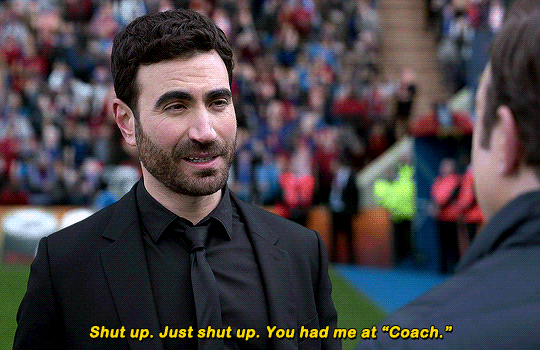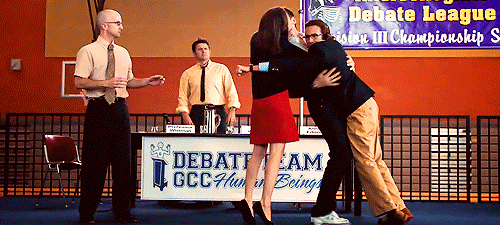Months ago, a Twitter blowup – for lack of a more eloquent term – occurred when some Community fans began to pester Andy Bobrow to the point where he grew defensive of his work, his unaired episodes, and his decisions as head writer in the absence of Dan Harmon.
These fans were shippers. In particular, they were Jeff/Annie shippers – a handful of them, to be exact – who wanted answers that Bobrow could not give them. As the ladies of Hot Switch and I explained in a recent episode (and I believe it was Jaime who made this observation), there are moments that cause dysfunction and dismay within a fandom. These moments occur when the image that the fandom has created in their minds of a particular character, including their wants, desires, dislikes, likes, etc. does not coincide with the character that the writers create on paper. Bobrow told us, in the final lines of his explanation on Twitter the following:
And can we at least agree on one thing that I hope and pray you can all see as clearly as I can? That Jeff Winger sabotages his relationships, and that Jeff Winger, deep down, doesn’t think he deserves happiness? Do you guys not buy that?
In our episode of Hot Switch, I argued that Bobrow was incorrect… or at least, the intention of the writers to convey that persona of Jeff Winger had failed. Because when there is a disconnect between the way that characters are written and the way that they are either acted or perceived, THAT is when things like our affectionately named “Bobrowgate” occur. See, it doesn’t matter in this scenario if Andy Bobrow is right or if Jeff/Annie shippers are right.
What matters, I’d argue, is that what the writers believe to be true about their characters are not what the actors and then, subsequently, sect of audience members (“shippers”) believe to be true about them. THAT is why “Bobrowgate” occurred and will never truly be resolved. We can argue and tweet and apologize all we want, but that will never solve the underlying issue – the truth of the matter is that the writers still see Annie Edison as an eighteen-year old schoolgirl with a “crush,” and Jeff as a creepy, smarmy ex-lawyer who will never find true love or happiness in a relationship. And the audience sees Jeff as a maturing, albeit flawed man and Annie as a 22-year old, self-possessed woman.
But that, as Joey Tribbiani would say, is a rather “moo” point. So instead of debating the merits of “Bobrowgate,” let’s take some time to discuss fifteen instances in which Jeff and Annie were NOT creeped out by their feelings for one another, shall we? I ship Jeff/Annie, and I feel like a vast majority of the people I know and follow do as well. What is their reasoning for doing so? Well. For starters, these two characters complement one another’s personalities so seamlessly – Annie is Jeff’s conscious; he talks her away from the edge. She forces him to buckle down; he causes her to loosen up.
Joel McHale and Alison Brie have fantastic chemistry together as Jeff and Annie. Granted, either actor could have chemistry with a ROCK, but the fact of the matter is that this chemistry – this attraction or pull or gravity that keeps bringing Jeff and Annie back to one another – cannot be ignored. It cannot be swept under a metaphorical rug. When these actors portray their characters as having a genuine and true connection with each other, the most offensive thing a writer or producer can do is insist that their audience is somehow wrong or warped for picking up on that chemistry.
#Pathological started out as – per his words – a way for Andy Bobrow to hurt the feelings of the Jeff/Annie shippers the way his had been hurt during the Twitter debacle. I’m not saying that either side was right: Andy shouldn’t have engaged the fans and spurred the dissention as much as he did, but the handful of Jeff/Annie fans should not have pestered the writer, nor should they have taken up arms when he didn’t respond the way they wanted him to.
All of that is irrelevant, or at least not as important as this, however: the Jeff/Annie majority managed to do something pretty exceptional – we took #pathological back. What was originally utilized as a weapon turned quickly into a battle cry and a badge of honor that I wear proudly. If being #pathological when it comes to Jeff and Annie is somehow wrong, well… then I don’t want to be right. So I’ve decided to compile fifteen of the best #pathological moments beneath the cut to discuss. If you’re ready, don those shipper caps because we’re about to set sail on the S.S. Milady/Milord!











